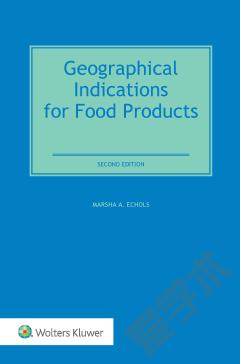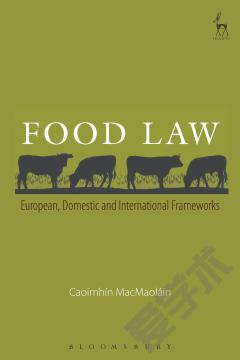Geographical Indications for Food Products —— International Legal and Regulatory Perspectives
----- 地理标志食品和其他地方观念 2版
Geographical indications (GIs) for food and other names that connote a characteristic or process together with origin fit in with notions of quality, tradition, and support for local producers that are important for the producers, for an increasing number of consumers, and for local development. Although there are many costs and administrative commitments associated with the use of these names, they can fill a growing consumer demand and a community need, and many localities and nations are turning toward them. However, in attempting to prevent the use of culture for protectionist purposes, the World Trade Organization (WTO) treats geographical indications, like trademarks, as private rights. This affirmation, which runs counter to the traditional view that a GI is a communal right, lies at the root of a legal stand-off at the WTO between two groups of countries. Focusing primarily on the Reports of the Panels in the WTO disputes brought by Australia and the United States against the European Communities, this important book explores the meaning of the TRIPS Article 22 and Article 24 commitments, especially as they concern the definition of the term geographical indication and national and most favored nation treatment. The author clarifies the relationship between niche-market geographical indications and the more prevalent (and commercially valuable) trademarks. With no sacrifice of depth, she covers a wide range of issues such as the following: estimates of the value added by origin and tradition; procedures followed by the European Communities; minimum standards of protection under TRIPS; the significance of the Agreement on Technical Barriers to Trade; administrative and procedural rules at WTO and national levels; the Codex Alimentarius and WTO Agreements; the role of the TRIPS Council; and, proposals for the Doha Development Agenda. As a detailed analysis and interpretation of the Article 22 definition as it exists within the context of an agreement on private property and the WTO market access goals, this book is of crucial importance to an adequate understanding of the trade rules that apply to the recognition, protection and enforcement of geographical indications and competing names. It is sure to be of great value to anyone concerned with this specialized field, whether practitioners, jurists, officials, policymakers, or academics.
{{comment.content}}








 京公网安备 11010802027623号
京公网安备 11010802027623号